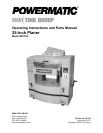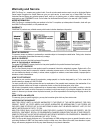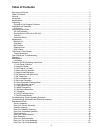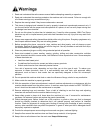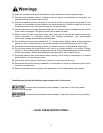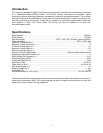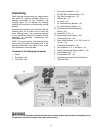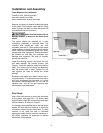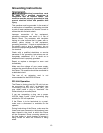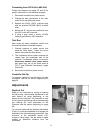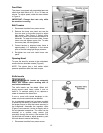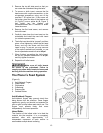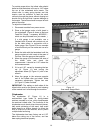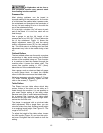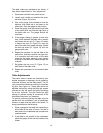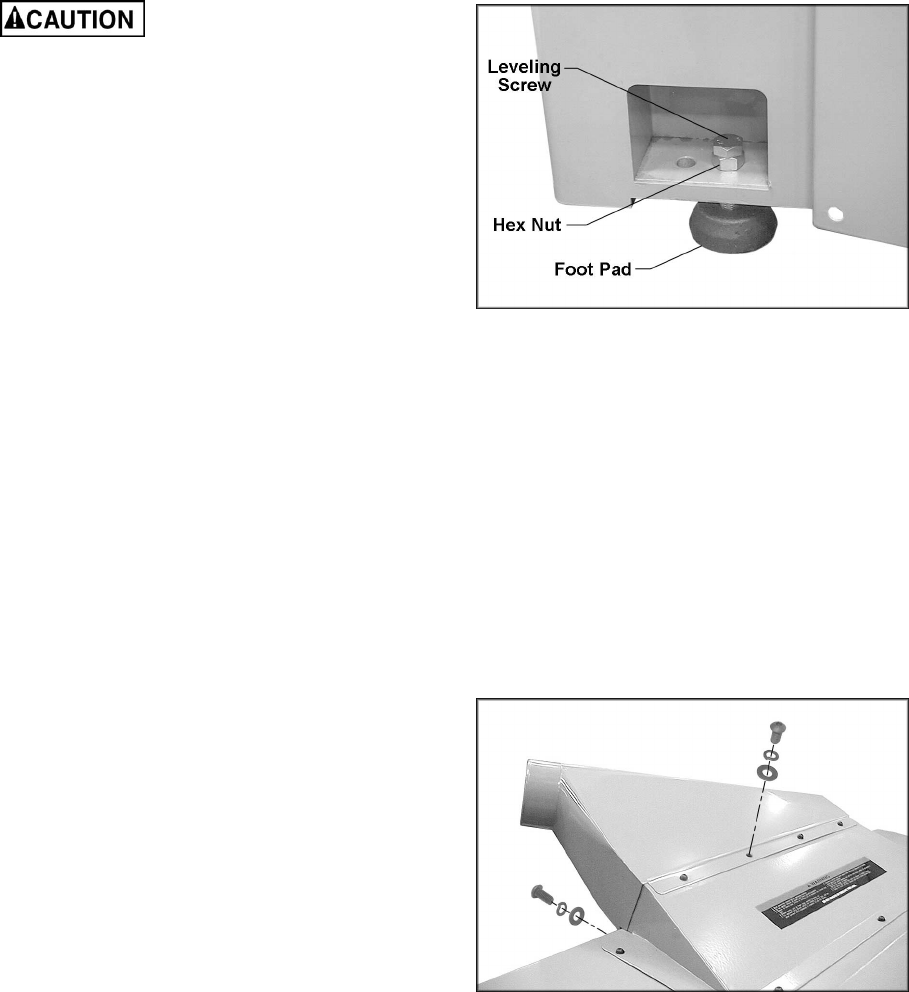
9
Installation and Assembly
Tools Required for Installation:
Forklift or hoist, with lifting straps
4mm hex wrench (provided)
22mm combination wrench (provided)
Remove any straps or boards holding the planer
to the pallet. Place straps under the four lifting
hooks at front and back to raise the planer off
the pallet and move it to location.
Make sure the straps will not
damage buttons or levers on the front of the
planer.
The planer should be installed on a solid
foundation, preferably a concrete floor. The
machine area should be clean, dry, well
ventilated, and well lit. Since planers can create
noise problems, the site selection should be one
which minimizes reverberant sound from walls,
ceilings and other equipment. Electricals should
be installed so that they are protected from
damage and exposure. Be sure to properly
ground the machine.
Lower the leveling screws, and place the four
foot pads beneath the leveling screws. See
Figure 1. Lower the machine slowly onto the foot
pads. The screws can be turned as necessary
until the planer table is level. Tighten the hex
nuts against the base to secure the screw
settings.
Exposed metal parts have been coated with a
rust preventative. This should be removed with a
soft cloth moistened with kerosene or a good
commercial cleaner/degreaser. Do not use an
abrasive pad, and do not get solvents near
plastic parts or painted areas.
Dust Hood
Use a 4mm hex wrench to mount the dust hood
to the planer with eight M6 x 12 button head
socket screws, eight M6 lock washers and eight
M6 flat washers, as shown in Figure 2.
It is strongly recommended that a dust collection
system be used with this machine. It should be
of sufficient volume for this size planer. If a dust
collector is not used, the user is cautioned
against the health hazard and the limitations in
the OSHA regulation for employee or student
exposure to dust particles.
Figure 1
Figure 2



